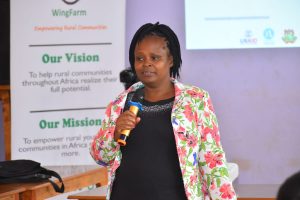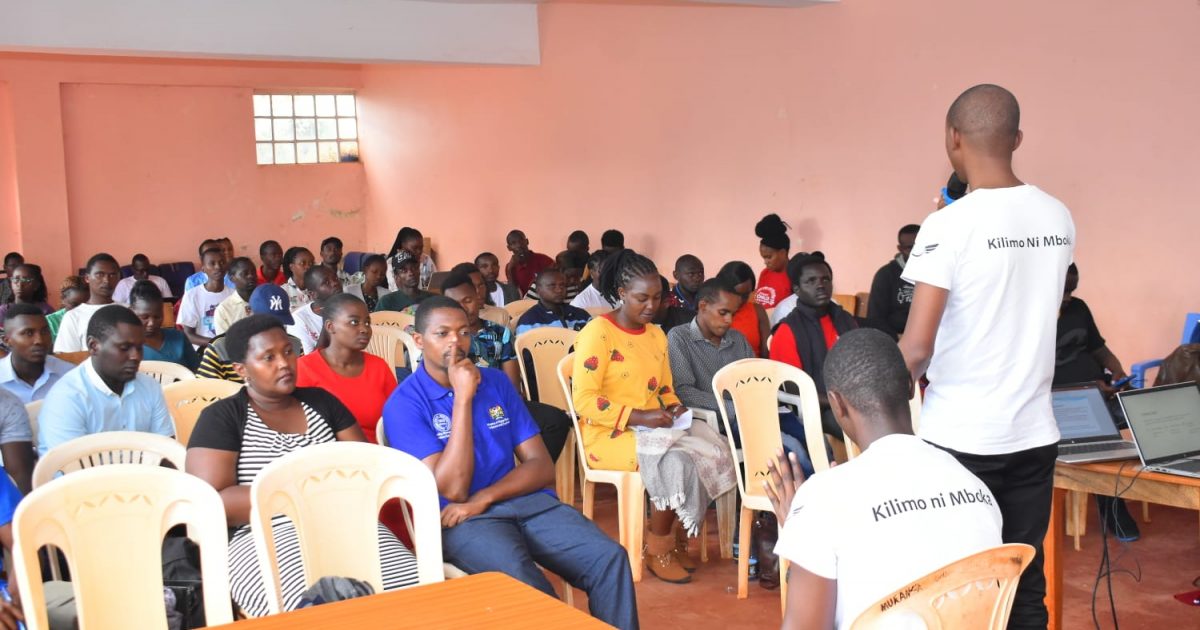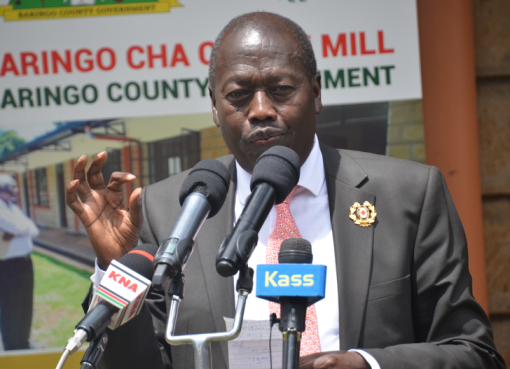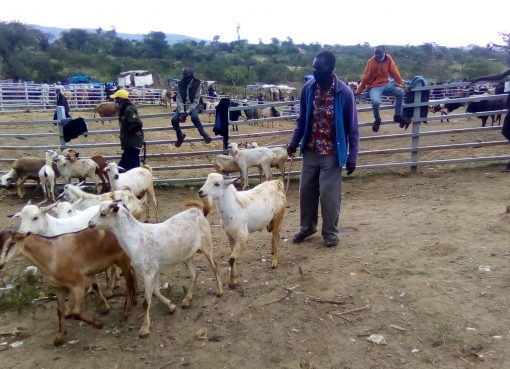Some 54 young farmers from across Murang’a County have benefited from a three-day training session to equip them with entrepreneurship skills for their agribusinesses.
The training, dubbed the Youth Entrepreneurship in Agribusiness Project (YEAP), took place in Murang’a Town and was aimed at training the youth on leveraging the current innovations and technology trends so that they can integrate them into their farming practices to increase yields.
Speaking to the youths, Kamau Njoroge, the Chief Executive Officer and founder of Wing Farm, a youth-led non-governmental organisation, underscored the importance of YEAP in equipping young people with entrepreneurship skills in agribusiness as a way of empowering youths to fight poverty.

“We focus on rural development, capacity building, and empowering youths through agriculture and agricultural-based value chains,” he said.
Njoroge said that in Murang’a, they are training young people on entrepreneurship in agribusiness, good agricultural practices, climate-smart agriculture, and financial literacy.
“We are training the youth on agricultural technologies and innovations, developing an agribusiness plan, and managing agribusiness enterprises so that they can profit from their agribusinesses,” he said.
“We intend to train over 300 youths in Kiambu, Murang’a, Nyandarua, and Kirinyaga counties,” he added.
Through this training, he said, the young farmers will gain skills in the development of entrepreneurial skills, the creation of new businesses, and improving agriculture value chains, adding that this will increase job opportunities in the agriculture sector.
The CEO divulged that out of 237 youths who had applied to be part of YEAP, 75 were selected.
“The requirements for this project were a KCSE certificate and for the youth to be actively practicing agriculture,” he said.
Njoroge further said that after entrepreneurship training, the youths who took part in this programme will take part in a one-month mentorship programme so as to gain hands-on experience in managing agribusiness enterprises.
He urged youths to take up similar opportunities whenever they are available, as they are very beneficial.
“We are also teaching the youth soft skills such as communication skills and interpersonal skills to help them generate more income through sales or serve as employability skills for those seeking employment,” said Silas Kenyatta, an officer from the Ministry of Agriculture who works with the youth.
He explained that the training is also sensitising youths on how and where to mobilise funds for their startups.
“This training informed the youth on available financing options such as the Uwezo Fund and the Youth Fund, among others, where they can access loans to grow their businesses,” he said.
Kenyatta called upon the youth to take advantage of the digital platforms to grow and market their agricultural produce to their target markets.
He urged primary schools and junior secondary schools to register 4K clubs for the learners so as to give the children a head start with impactful agricultural knowledge.
Murang’a County Director for Youth Ruth Njoroge said that the youths that have been trained will share the knowledge with their peers to encourage them to venture into agribusiness.
“Youths who have attended this training are drawn from all the subcounties in Murang’a, and therefore the knowledge gained will be cascaded to others who will be in a position to practice sustainable agribusinesses,” she said.
She called upon youths in entrepreneurship in the county to apply for available funds offered by the government, like the Uwezo Fund and the Youth Fund.
“Such funds have very low interest rates, and the youths will benefit by taking up loans to boost their businesses,” she said, adding that they have a grace period of six months before one can start the repayment process.
By Anita Omwenga





